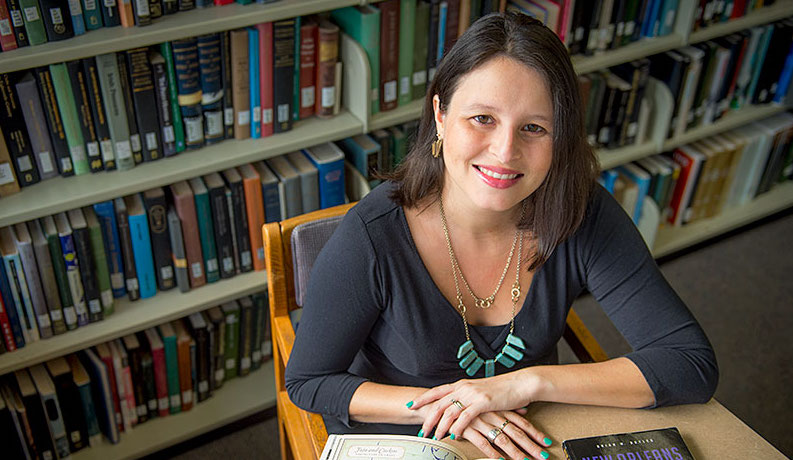There’s nothing like living in New Orleans, especially during Mardi Gras. You’ll see the wacky, the tacky, and everything in between. The school band around the corner from my house practices their songs and steps for one of the many parades happening during the season. As students make the block, neighbors and I often rush out the door to catch a glimpse of them polishing their moves and sound. If you haven’t been to New Orleans during Mardi Gras season, what are you waiting for?
Before you catch those beads, catch these reads and prepare yourself for all that is Mardi Gras. And if you can’t make it to the streets in February, these books can offer you a true taste of the celebration. As it’s often said in New Orleans, “laissez les bon temps rouler” or “let the good times roll!”
Cherchez la Femme: New Orleans Women (University Press of Mississippi, 2019) by Cheryl Gerber. Cherchez la femme is a French phrase which literally means “look for the woman.” This book, which was just released in time for this year’s Mardi Gras, captures the essence of what it means to be a woman in New Orleans culture. There are amazing photos and essays written by women about women including musicians and second-liners, and local favorites like Leah Chase and Irma Thomas.
New Orleans Carnival Krewes: The History, Spirit & Secrets of Mardi Gras (The History Press, 2014) by Jennifer Atkins. Can you say pomp and circumstance? New Orleans does it better than any other American city. Balls. Gowns. Masks. Parades. Parties. Learn about the traditions and history of the carnival krewes behind the celebrations with this book.
Lords of Misrule: Mardi Gras and the Politics of Race in New Orleans (University Press of Mississippi, 1997) by James Gill. If you want some tea on Mardi Gras, this is a good start. There are no traditions without politics. Read about the history, codes, and racism intertwined with Mardi Gras. Find out what’s really behind some of those masks.
From the Kingdom of Kongo to Congo Square: Kongo Dances and the Origins of the Mardi Gras Indians (University of Louisiana at Lafayette, 2017) by Jeroen Dewulf. This is my favorite book on this list and traces the history of Black Indian masking to its African roots. This is a must-read that explores the connection between Black Indians in New Orleans and Native American culture.
Kelly Harris is the literary outreach coordinator for Poets & Writers in New Orleans. Contact her at NOLA@pw.org or on Twitter, @NOLApworg.





